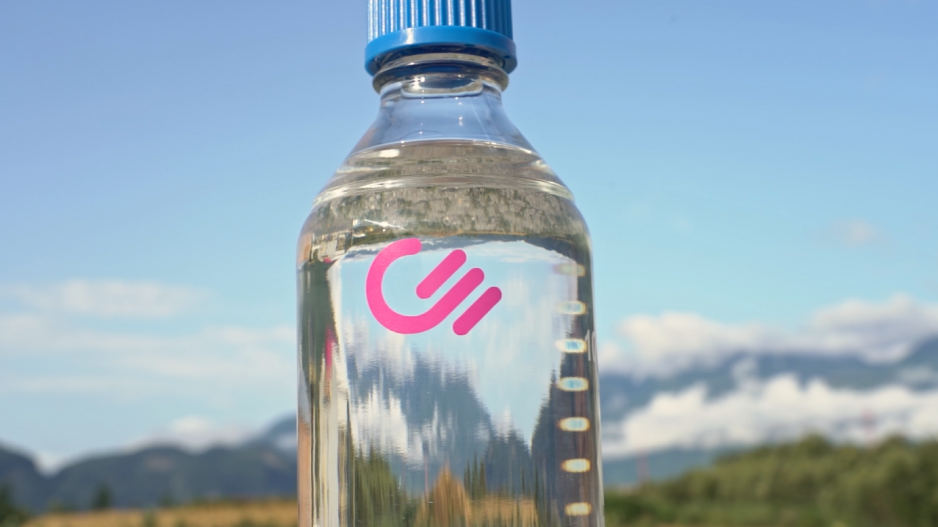The fossil fuel industry takes a lot of heat for its contributions to climate change. But just as it has had an outsized contribution to global greenhouse gases, it may also have an outsized role to play in reducing or eliminating emissions, those attending a forum on energy today heard.
While green-tech evangelists have touted the possibilities of direct air capture, for example, it is an American oil and gas company, Occidental Petroleum Corp. (NYSE:OXY), that is financing Carbon Engineering’s first commercial scale carbon capture plant in the U.S., expected to be in operation by 2024. The companies are also working with a consortium of airlines to develop zero emission jet fuel.
And it is a Canadian petroleum company – Parkland Fuels (TSX:PKI) – that plans to build electric vehicle charging stations at 25 lof its gas stations across B.C. over the next two years, as well as reduce emissions by about 1 million tonnes annually with made-in-B.C. biofuels at its refinery in Burnaby.
And if you want to make hydrogen or sequester carbon, the real experts in those fields are Alberta oil and gas companies.
“I would also say that the people with the best expertise to put carbon back underground are the people who've been taking it out of the ground,” Anna Stukas, vice president of Carbon Engineering, said at an energy forum sponsored by the Greater Vancouver Board of Trade (GVBOT) and Bennett Jones Tuesday.
The forum’s topic was the great energy transition, and the challenges and opportunities it poses for Canadian companies, both in clean-tech and fossil fuels.
Thanks to all its oil and gas wells, Western Canada has vast geological sequestration potential, Stukas said.
“The people who can best help us to safely and securely put that (CO2) back underground where it came from are the people in Canada's energy sector today,” she said.
Likewise, Alberta is already a hydrogen producer, and therefore well poised to take a lead in the nascent hydrogen economy.
“The reality is there's more hydrogen produced in Alberta than just about anywhere in Canada and it's used in the refining of oil,” said Ben Nyland, CEO of the hydrogen fuel cell maker Loop Energy Inc. “So … it's an industry that's ideally suited to jumpstart the hydrogen economy.”
Susannah Pierce, the new president of Shell Canada, said parent company Royal Dutch Shell – one of the world’s biggest oil companies – has already begun a shift away from oil to cleaner fuels, like natural gas and renewable energy.
“We've peaked oil,” she said,
Shell Canada already operates one of the largest carbon capture plants in North America – the Quest plant at its Scotford refiner in Edmonton – capturing 6 million tonnes of CO2 over the last six years -- and now plans to build a second carbon capture plant there. Shell is also investing in renewable power.
“We just made a major announcement today on another acquisition of a solar and battery storage company in the United States,” Pierce said. “We announced just a few weeks ago a partnership with Silicon Ranch to supply solar power to our Scotford facility north of Edmonton."
Canadian oil and gas companies have also been working to reduce the emissions intensity of the oil and gas it produces.
“We've reduced our GHG emissions intensity by 31%, and we have met our methane reduction target of 25% three years ahead of target,” said Leah Turner, public affairs director for Tourmaline Oil Corp. – a major player in the B.C. Montney natural gas formation.
“Methane abatement is a huge story for us. We're making progress faster than we expected. It's all based on technology. We strongly believe we'll be able to get to the 75% reduction target being discussed. In fact, we're aiming for zero.”
Tourmaline has a natural gas plant in Edson, Alberta that it uses as a testing facility that allows clean-tech companies to test out their innovations.
“We're looking to open a synergy center in northeast B.C., which is going to be similar to our emissions testing center in Edson, which focuses on processing, but we're also going to expand the scope and start to study CCUS,” Turner said.
Closer to home, Parkland Fuels has developed its own biofuel refinery at its Burnaby refinery, where waste oils and fats are turned into biofuel and then blended into its oil to lower the emissions intensity of the gasoline, diesel and jet fuel it produces.
“Our co-processed fuels have less than one-eighth of the carbon intensity of conventional fuels,” said Ryan Krogmeier, senior vice president of refining, supply and trading at Parkland.
“We mean to increase our production of these low carbon fuels, which will result in a one million tonne reduction in our customers’ greenhouse gas emissions per year by 2026,” he said.
To help hard-to-abate sectors, notably the oil and gas sector, Shell Canada and the B.C. and federal government recently contributed $105 million to create the new B.C. Centre for Innovation and Clean Energy.
The centre’s new executive director, Ged McLean, said the focus of the centre is sectors that are hard to decarbonize, though CCS, hydrogen, renewable natural gas and biofuels, batteries and energy storage. It's mandate is to partner resource companies with clean-tech companies to demonstrate their technology and scale up to commercialzation.
“And we're going to be inviting the participation from more and more corporate sponsors to fund this work,” McLean said.
"There's a great economic opportunity that is there for those who would take it, as we move towards net zero."
Editor's note: This story originally stated the Quest carbon capture project has captured 6 million tonnes of CO2 annually over six years. In fact that is the total of CO2 captured over six years, not the annual amount.




